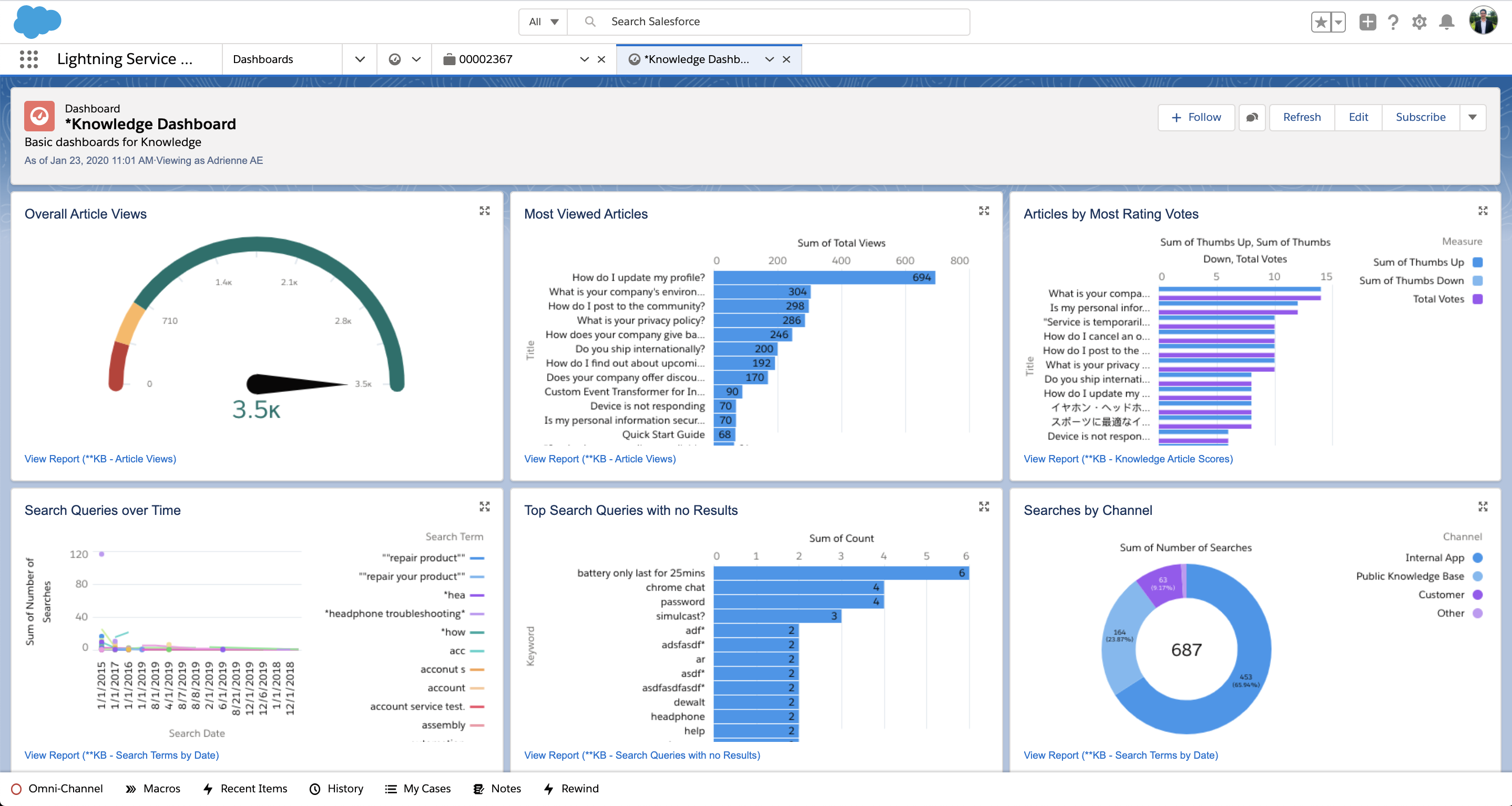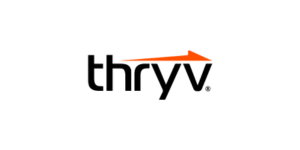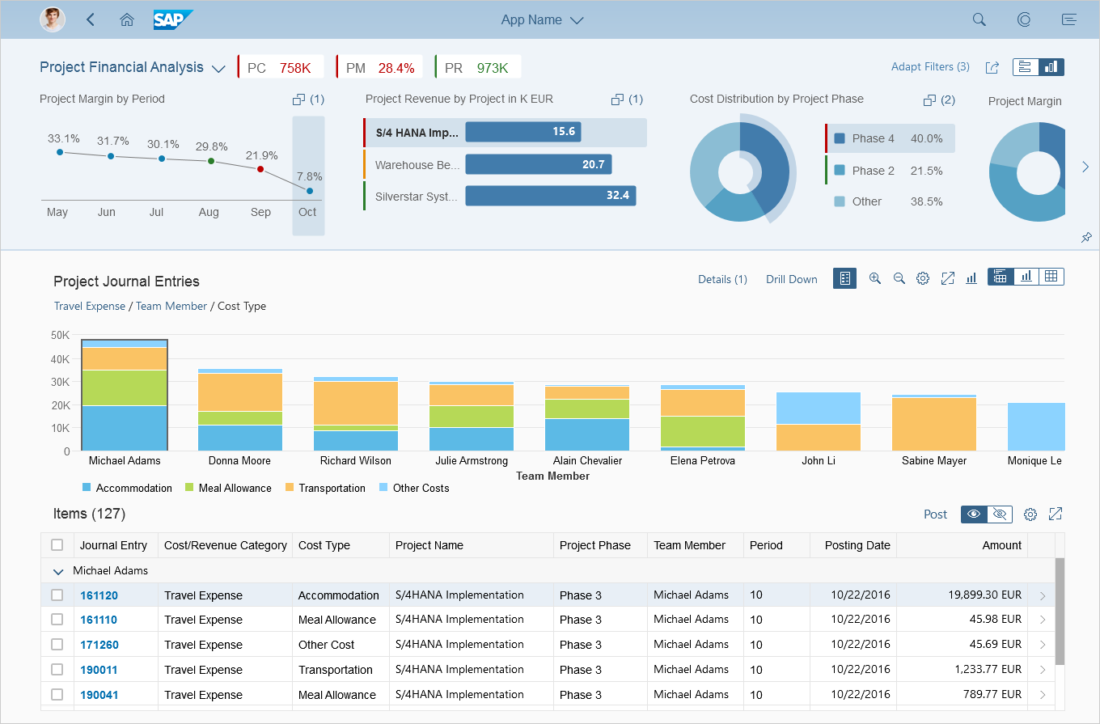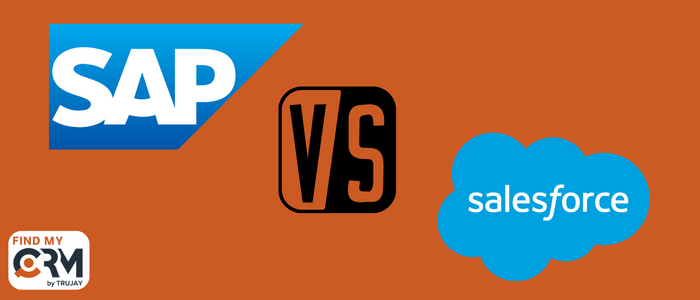What is Salesforce?

Salesforce's powerful software technologies help firms strengthen client relationships and business processes. Customer 360 is Salesforce's comprehensive CRM platform, which includes all of their Salesforce technology portfolio solutions. It combines service, sales, marketing, IT, commerce, and analytics functions into a single platform, allowing users to benefit from CRM capabilities across all aspects of their business activities.
[Related article: How much does Salesforce cost?]
You can also consider these CRM programs to manage customer relationships seamlessly and efficiently:
-Mar-27-2024-11-22-03-9284-AM.png)
Pipedrive
Pipedrive CRM is a user-friendly platform that is effortless to master. It is the creative web designer's secret weapon in the world of Customer Relationship Management.

Thryv
Thryv is the all-in-one business management software built for small and midsize businesses. Small and midsize businesses need one handy solution for their tasks and goals and Thryv manages it.
-Mar-27-2024-11-21-46-3665-AM.png)
Zoho
It is a web-based email marketing management service for small and medium businesses. It automates the entire marketing process - from managing your email marketing campaign to maintaining mailing lists.
-Mar-27-2024-11-21-49-3654-AM.png)
monday sales CRM
Let monday sales CRM do the grunt work while your team stays focused on high-level tasks, such as creative projects, business strategy, and relationship building.
What is SAP?

SAP offers a range of customer-facing products known as the CX suite, which includes all of their CRM features and capabilities. The solution enables companies to connect their customer support operations with each of their workforce departments using data insights and AI-powered intelligence.
SAP provides a comprehensive suite of enterprise software solutions, including enterprise resource planning (ERP), supply chain management (SCM), and human capital management (HCM). Adopting CRM software in conjunction with others can be an effective way to centralize business information.
[Related article: What is the Difference Between ERP and CRM?]
Comparison Chart of SAP and Salesforce
| Criteria |
||
| Our Rating |
3.9/5 |
4.4/5 |
| Customer Support |
The CRM offers 24/7 customer service via online chat, email, and phone. |
The standard package offers a help portal with self-guided and self-service materials. You can purchase Premium packages for an extra fee. These include additional features such as expert coaching sessions and 24/7 assistance. |
| Pricing |
Custom pricing |
Salesforce Sales Cloud:
|
| Free Trial |
✅ |
✅ |
| Free Plan |
❌ |
❌ |
Main Differences Between Salesforce vs SAP

Salesforce specializes in cloud-based CRM solutions, dominating the CRM market. Its intuitive interface prioritizes customer relationship management components, offering ease of use and scalability through subscription-based pricing. With a focus on customization and integration, Salesforce caters to businesses of all sizes.
In contrast, SAP provides a broader range of enterprise solutions beyond CRM, including ERP and HR. Its interface is perceived as more complex, and pricing can vary depending on factors such as deployment model and customization needs. While SAP offers robust customization options and integration capabilities, it may require more technical expertise to navigate effectively.
Overall, the key differences between Salesforce vs SAP CRM are in their focus, market position, user interface, pricing model, and customization capabilities, each catering to the diverse needs of businesses in the enterprise software market.
[Related article: Salesforce Alternatives (Free & Paid CRM Software Tools) in 2024]
Similarities Between Salesforce and SAP

Salesforce and SAP, two leading providers of enterprise software solutions, share several similarities:
- Both Salesforce and SAP offer robust Customer Relationship Management (CRM) solutions that cover various aspects such as sales, marketing, customer service, and commerce. They provide tools and features to help businesses manage customer interactions, improve engagement, and drive sales.
- Both Salesforce and SAP offer cloud-based software solutions, allowing businesses to access their platforms from anywhere with an internet connection. This cloud-based approach offers scalability, flexibility, and ease of deployment compared to traditional on-premises software.
- Both Salesforce and SAP prioritize innovation and continuously invest in research and development to introduce new features, updates, and technologies to their platforms. They strive to stay ahead of market trends and meet evolving customer needs in a rapidly changing business landscape.
- Both Salesforce and SAP have a significant global presence, serving customers across various industries and regions worldwide. They offer localized solutions, support, and services to cater to the diverse needs of businesses operating in different markets.
SAP CRM vs Salesforce CRM: Sales and Marketing

SAP's CX suite stands out by merging sales and marketing functionalities seamlessly. Like a dynamic duo, the Sales Cloud component enables users to see the bigger picture of customer interactions, pinpointing which interactions drive profits. Moreover, diving into sales and customer data provides valuable insights, enabling smoother sales procedures and automated tasks. With features like guided selling and intelligent recommendations, SAP Sales Cloud empowers sellers to focus on customer needs, ensuring a more personalized sales approach.
Salesforce's Sales Cloud offers a similar arsenal for managing sales data, whether on the platform or via its mobile CRM app. It's packed with tools for tracking opportunities, analyzing revenue growth, and foreseeing sales trends. Customer experiences are also prioritized, with features aimed at enhancing interactions and automating tasks through data analysis. On the marketing front, Salesforce's Marketing Cloud leverages customer data to streamline processes and enhance outreach efforts. Real-time insights and actionable analytics equip users to understand and optimize their marketing strategies effectively.
[Related article: Migration to Salesforce: Guide to Smooth Data Import]
SAP CRM vs Salesforce: Key Features

In this section, you can compare SAP CRM vs Salesforce features, including:
Case Management
SAP's approach focuses on resolving customer service requests and managing internal cases effectively. Through its multichannel ticketing and case management capabilities, SAP enables businesses to handle customer queries and internal HR matters seamlessly. Service tickets are created and routed automatically to the appropriate agents, ensuring swift response times. Agents have access to a specialized interface where they can view relevant customer data and track service-level agreements to prevent any cases from falling through the cracks.
Salesforce's Service Cloud provides similar case management features within its comprehensive CRM platform. Cases are automatically routed to the most suitable agent or team based on availability and skill sets, optimizing response efficiency. The platform also incorporates service process automation, guiding agents through step-by-step resolutions while ensuring compliance. Prebuilt data source integrations enable agents to access critical customer information swiftly. Moreover, alerts and customer activity updates keep agents informed and empowered to address cases promptly and appropriately.
Business Intelligence
Salesforce provides users with access to real-time analytics using its paid add-on, QlikView. This tool is designed to be user-friendly, requiring little to no IT expertise. With QlikView, businesses can track trends in their sales pipelines, boosting effectiveness and efficiency. Additionally, users can utilize it to plan and monitor marketing campaigns and analyze customer and lead data to refine strategies for improvement.
SAP offers its own BI solution by embedding SAP Analytics Cloud into its CX suite. This integration allows users to analyze data in real-time without the need for separate BI systems. SAP BusinessObjects brings additional capabilities like KPI reporting into the mix, enhancing the analytics experience within the SAP ecosystem. However, it's worth noting that relying solely on SAP's BI tools might pose limitations in certain scenarios.
[Related article: The Comprehensive Guide to Integrating CRM Systems with Enterprise-level ERPs]
AI and Machine Learning
Salesforce introduces a suite of AI-powered tools, including:
- Einstein Prediction Builder: Predicts business outcomes by analyzing data trends and patterns.
- Einstein Bots: Custom-built and trained bots that streamline business processes, engage customers, and empower employees using CRM data.
- Einstein Vision: In-app image recognition technology identifies products, brands, and more, enriching customer experiences.
- Einstein Language: Analyzes text data across channels to understand customer emotions, intents, and beliefs, enabling personalized interactions.
- Einstein Discovery: Provides AI-driven insights and recommendations, facilitating increased productivity and revealing valuable data patterns.
On the other hand, SAP offers its own array of AI services, such as:
- SAP Customer Retention: Predicts customer behavior to improve retention strategies.
- SAP Deal Intelligence: Scores prospective sales opportunities and ranks them based on their likelihood of closing, aiding in sales prioritization.
- SAP Service Ticket Intelligence: Automatically categorizes service tickets, prioritizes tasks, and suggests solutions, enhancing customer support efficiency.
- SAP CoPilot: A digital chat assistant that assists users in achieving their objectives by asking questions and providing answers.
- SAP Brand Impact: Measures brand influence and evaluates the effects of advertising investments by tracking brand visibility in various media formats, such as videos.
Omni-Channel Experience
Salesforce's Commerce Cloud takes a cloud-based approach, simplifying the process for retailers. It consolidates multiple features into one centralized platform, covering operations, order management, merchandising, marketing, and more. This integrated system ensures smoother operations and enhanced customer engagement.
SAP takes a different route with its omni-channel strategy. It seamlessly merges all physical and digital touchpoints onto a single platform. This holistic approach guarantees that customers receive a consistent experience regardless of the device they use, fostering stronger connections and brand loyalty.
Analytics
SAP's CX suite provides comprehensive support for data integration and analysis. By harnessing customer delivery, inventory, and return data, organizations can gain actionable insights to enhance sales and improve customer engagement and retention. Through end-to-end enterprise integration, users can unlock valuable information from both internal and external data sources. Integration with SAP Analytics Cloud facilitates data compilation and analysis across departments and solutions. The enterprise edition of Analytics Cloud empowers analysts to develop predictive models, enabling a better understanding of customer needs and prediction of future trends based on historical data and behaviors. Dynamic reports and visualizations generated by SAP's technology further enhance data utilization for teams.
Similarly, Salesforce's CRM Analytics tool, formerly known as Tableau CRM, offers AI-driven insights based on customer data to support various organizational processes. Teams can analyze service demand data trends to better understand customer needs and adjust processes accordingly. Integration with Slack enhances collaboration efforts in data analysis, providing users with important data metrics and updates via Slack notifications. The Tableau integration offers an analytics platform supporting intelligent statistical modeling and queries, enabling tracking of critical customer service metrics with alerts and targets, and uncovering valuable customer insights.
[Related article: Analytical CRM: Definition & Features (+ 7 Best Analytical CRM Tools)]
SAP vs Salesforce CRM: User Interface

When it comes to SAP CRM vs Salesforce CRM user interface comparison, Salesforce stands out with its intuitive and user-friendly design, making it a top choice for CRM software. The platform prioritizes components related to customer relationship management, ensuring a seamless user experience.
On the other hand, while SAP cloud offers a decent interface, it may not be as comprehensive or user-friendly as Salesforce. If having an easy-to-use interface is a priority for your business, Salesforce emerges as the preferred option.
Salesforce vs SAP: Customer Support

Salesforce is known for its prompt and thorough response to client issues, offering a range of support options including a self-help portal, learning base, and live chat as part of its annual maintenance and support contracts. However, premium administrator support does come at a higher cost, with users required to pay an additional percentage of their subscription fee for phone support.
In contrast, SAP's customer support is perceived to be slightly slower in addressing issues compared to Salesforce. While SAP also provides a self-help portal, learning base, and 24/7 toll-free worldwide support for non-technical inquiries, user feedback indicates that SAP CRM solution reports may not be readily available for all modules.
[Related article: Salesforce vs Zendesk — Which one is better for customer service?]
SAP vs Salesforce: Integrations

If you want to compare SAP vs Salesforce CRM integration, it`s worth mentioning that both systems offer robust solutions to enhance their respective CRM platforms.
SAP's CX suite seamlessly integrates functions for Marketing, Sales, Commerce, Customer Service, and Customer Data, creating a centralized platform for comprehensive data management. With over 2,500 prebuilt integrations with existing third-party tools and data sources, SAP ensures flexibility and compatibility with various business processes. The SAP integration suite further streamlines operations by automating each process, while API-based integration with external data sources enables real-time data analytics for users.
Similarly, Salesforce provides extensive support for customer relationship processes through its integrations with external programs. Apart from integrations with Slack and Tableau, Salesforce offers a wide range of options within Customer 360. The AppExchange marketplace allows users to select from a plethora of connected third-party applications and install them seamlessly. Teams can also leverage the MuleSoft integration and API platform to connect with other programs, expanding integration capabilities. Moreover, Salesforce's Customer 360 Truth offers a portfolio of add-on products specifically designed to connect customer data within Salesforce and non-Salesforce systems, enabling teams to get insights from the analysis of all their data sources.
Salesforce vs. SAP: Pricing

SAP's CX suite combines various cloud functions, making it a comprehensive solution for CRM needs. While it may appear pricier compared to purchasing individual modules, each option within the suite, including Marketing, Sales, Commerce, Customer Service, and Customer Data, provides specific CRM capabilities. Unfortunately, SAP doesn't offer fixed pricing online due to the customized nature of their solutions. Prospective customers can request personalized quotes through SAP's website to get pricing tailored to their specific requirements.
Salesforce follows a similar approach with pricing tailored to the user's needs and chosen edition(s). Each edition of Salesforce, such as Sales Cloud CRM software, offers popular features of the Salesforce 360 solution. Pricing starts at $25 per user, per month when billed annually for the Sales Cloud CRM edition, with higher-priced plans offering additional features and capabilities. Moreover, Salesforce provides optional add-ons that can enhance software capabilities, catering to specific business requirements. This flexibility in customization makes Salesforce an attractive option for organizations with diverse and complex needs.
[Related article: Salesforce Migration Process: Step-by-Step Guide]
SAP or Salesforce: Which is the better CRM option?

In conclusion, comparing Salesforce and SAP or SAP Business One CRM vs Salesforce reveals that both companies offer powerful solutions tailored to different business needs.
While SAP excels in providing a comprehensive CRM solution with its Customer Experience suite, Salesforce stands out as a preferred option for marketing solutions.
Ultimately, the choice between Salesforce and SAP depends on the specific requirements and objectives of each business. By carefully evaluating these factors, businesses can select the solution that best aligns with their goals and drives success in their operations.





